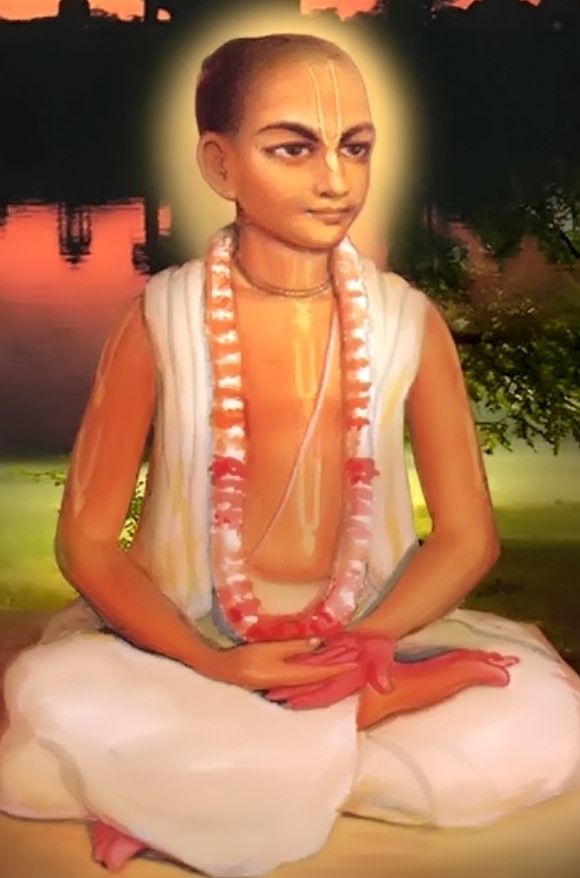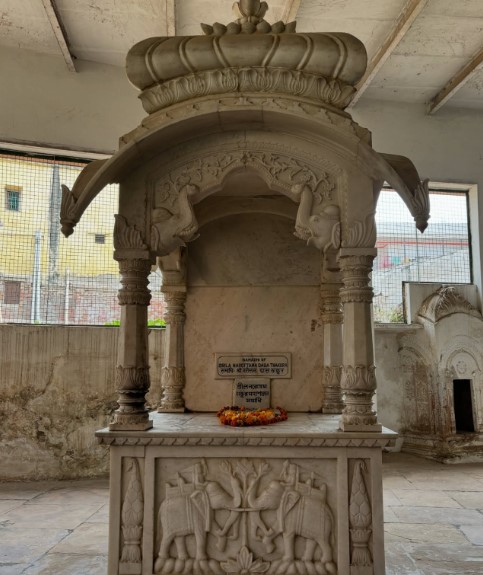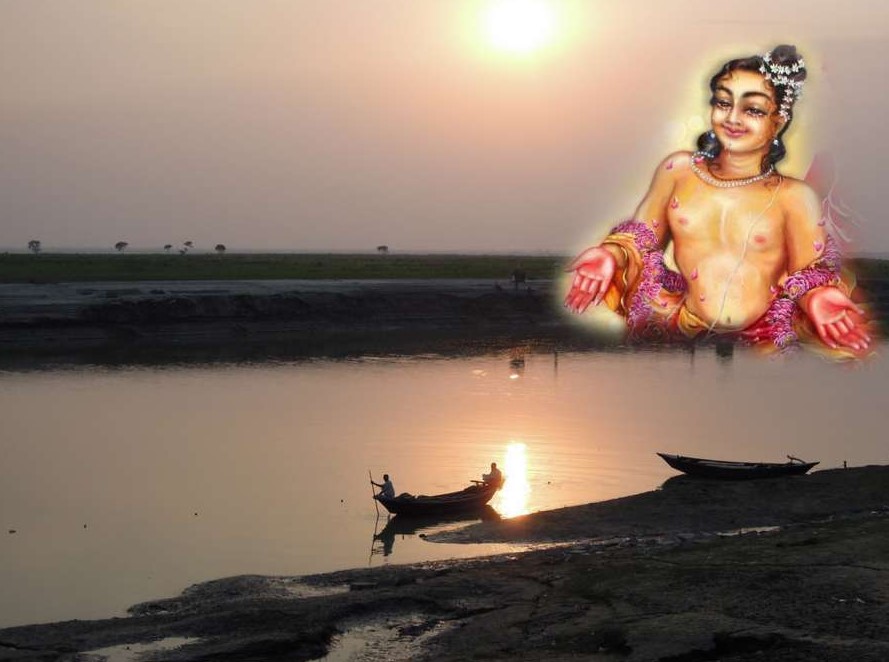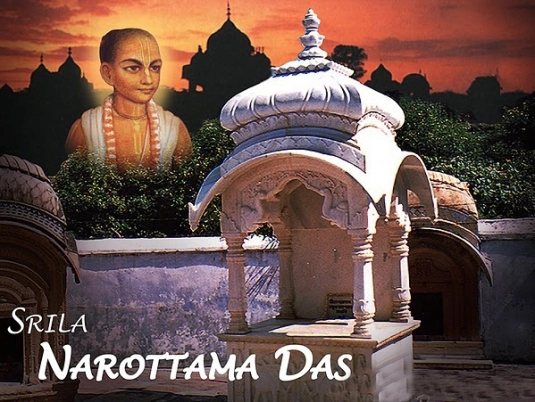The Gaudiya Vaishnava calendar marks the disappearance day of Srila Narottama Das Thakur as a sacred occasion to honor one of the most beloved saints in the lineage of Sri Chaitanya Mahaprabhu. His life shows the essence of prema-bhakti—pure love for Krishna—and his contributions continue to shape the spiritual landscape of Gaudiya Vaishnavism and spiritual education in Gurugram and beyond.

Early Life and Divine Destiny
Born on Maghi Purnima in Kheturi, Bengal, to King Krishnananda Datta and Narayani Devi, Narottama Das Thakur was surrounded by royal luxury. Yet, from childhood, he displayed signs of a mahapurusha—a spiritually exalted soul. His golden complexion, lotus-like eyes, and deep absorption in the names of Chaitanya and Nityananda astonished all who met him.
According to Premavilasa, Sri Chaitanya Mahaprabhu, while passing through Kanair Natashala, deposited his divine love (prema) in the Padmavati River, instructing the river to deliver it to Narottama. At age 12, following a dream from Nityananda Prabhu, Narottama bathed in the Padma, and the river overflowed, bestowing upon him the prema Mahaprabhu had left behind.
Renunciation and Spiritual Training
Unable to contain his ecstasy, Narottama left home on Kartika Purnima, walking barefoot to Vrindavan. There, he took initiation from Lokanatha Goswami, who had vowed never to accept disciples. Narottama’s humility and service melted his heart—he would secretly clean his guru’s latrine area every night, praying for mercy. Eventually, Lokanatha relented and initiated him, making Narottama his only disciple.
He studied under Jiva Goswami, alongside Srinivas Acharya and Shyamananda Prabhu, receiving deep insights into Gaudiya siddhanta. These three were later entrusted with distributing the writings of the Six Goswamis across Bengal and Odisha.
Preaching and the Kheturi Mahotsava
Narottama Das Thakur returned to Bengal to fulfill his guru’s order. In Kheturi, he organized the historic Kheturi Mahotsava, the first grand festival after Mahaprabhu’s disappearance. It brought together all major Gaudiya leaders, including Jahnava Devi, Srinivas Acharya, and Shyamananda Prabhu. During the kirtan, Mahaprabhu and His associates are said to have manifested in divine form.
He installed six sets of deities, including Radha-Krishna, Gauranga, and Radha-Ramana, and established kirtan as the primary mode of preaching. His songs, such as “Sri Guru Charana Padma” and “Hari Hari! Kabe Habe Mora Se Din”, are still sung in ISKCON temples and Gaudiya mathas worldwide.
His Writings and Legacy
Narottama’s literary works include:
• Prarthana – heartfelt prayers expressing the soul’s longing for Krishna.
• Prema Bhakti Chandrika – a guide to cultivating pure devotional service.
• Smarana Mangala – meditations on Radha-Krishna’s daily pastimes.
These texts are central to spiritual education in Gurugram, offering practical and emotional guidance for devotees on the path of bhakti.
Divine Appearance and Scriptural Prediction

Srila Narottama Das Thakur disappeared on the fifth day of the dark fortnight in Kartika, merging into the waters of the Ganges in a state of divine absorption. His samadhi is located in Kheturi, where devotees gather annually to honor his memory through kirtan, scriptural readings, and Gaudiya calendar events. His samadhi is a “Doodh Samadhi” (milk samadhi) located near Kheturi, Bangladesh, where milk and his divine remnants transformed into a fluid, merging with the Ganges. He also has a Pushpa Samadhi (flower samadhi) at the Radha Gokulananda Mandir in Vrindavan.
In Chaitanya Mangala by Lochana Das Thakur, Mahaprabhu says:
“Narottama will appear and spread prema-bhakti. Through him, My teachings will shine in the world.”
To empower Narottama, Mahaprabhu instructed Nityananda Prabhu to infuse the Padmavati River with divine potency. When Narottama bathed in that river, he was spiritually awakened and began his journey toward Vrindavan.
He also studied under Sri Jiva Goswami, absorbing the essence of Gaudiya siddhanta. Chaitanya Charitamrita (Adi-lila 10.106) glorifies the Goswamis:
“They compiled many scriptures and revealed the essence of bhakti. Their mercy is the foundation of our spiritual life.”
Narottama imbibed this mercy and became a living embodiment of their teachings.
Conclusion: A Saint for All Times

Srila Narottama Das Thakur’s life is a radiant example of humility, surrender, and divine love. On his disappearance day, let us remember his legacy by immersing ourselves in kirtan, studying his writings, and participating in Gaudiya calendar events that keep his memory alive.
Whether you’re attending a spiritual education program in Gurugram or observing the day at home, his life offers timeless inspiration for every seeker of Krishna.


